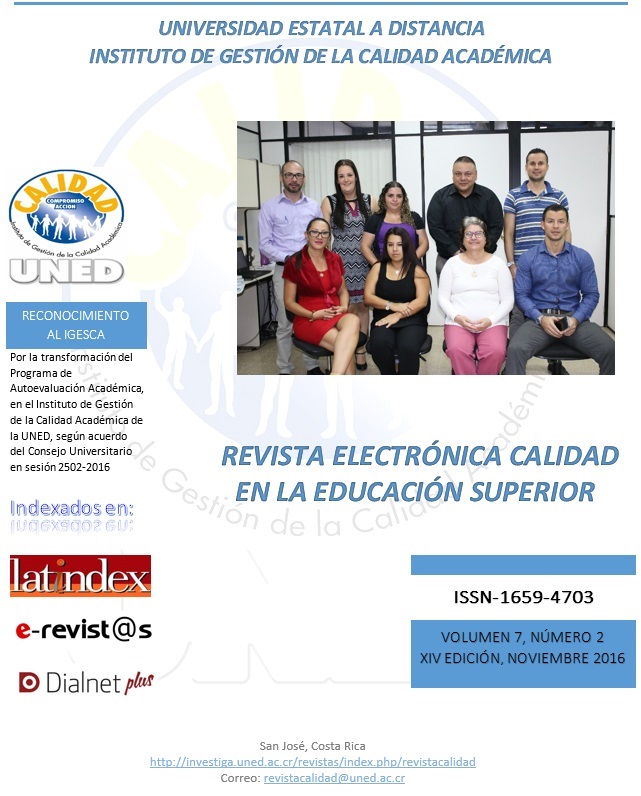VIRTUALITY ON CURRENT FORMATIVE PROCESSES
DOI:
https://doi.org/10.22458/caes.v7i2.1601Abstract
The training processes should characterize is by the update constant that can respond to the needs of them contexts in which is developed. It is as well as technology has burst so that thinking about virtual education is less and less likely, its applications extend not only to the traditional educational contexts (school, College and University), but to those contexts labour. These new models of learning are many advantages including saving resources, possibility to carry out education and training to the distance among others, while we face serious questions about what we understand by training processes and their actors, as the role of teacher-student. Is undeniable that the technology will be each time more embedded in them processes training virtual, by what these questions and assessments must rethink is and discuss is.
References
Barberà, E. & Badia, A. (Noviembre, 2005). El uso educativo de las aulas virtuales emergentes en la educación superior. Revista de Universidad y Sociedad del Conocimiento, II(2), 1-12.
Calvo, M. (2005). Formador ocupacional. Formador de formadores. Formación profesional ocupacional. Temario, test y casos prácticos (Primera ed.). Sevilla, España: Editorial Mad, S.L.
Imbernón, F., Silva, P. & Guzmán, C. (2011). Competencias en los procesos de enseñanza-aprendizaje virtual y semipresencial. Comunicar: Revista científica de comunicación y educación, XVIII(36), 107-114.
Silva, J. E. (2014). La virtualidad una oportunidad para innovar en educación: Un modelo para el diseño de entornos virtuales de aprendizaje. Revista Didasc@lia: D&E, V(1), 1-22.
Downloads
Published
How to Cite
Issue
Section
License
Esta revista provee acceso libre inmediato a su contenido bajo el principio de que hacer disponible gratuitamente la investigación al publico, lo cual fomenta un mayor intercambio de conocimiento global.
